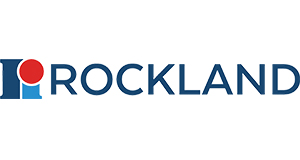p73 gamma protein-GST fusion
p73 gamma protein-GST fusion
Artikelnummer
ROC009-001-S72S
Verpackungseinheit
20 µg
Hersteller
Rockland
Verfügbarkeit:
wird geladen...
Preis wird geladen...
Application Note: p73 gamma Protein is stored in 50mM Tris-HCl, pH 7.5, 150mM NaCl, 10mM glutathione, 0.1mM EDTA, 0.25mM DTT, 0.1mM PMSF, 25% glycerol. p73 gamma Protein is suitable for use in Western Blot. Expect a band approximately ~85kDa on specific lysates or tissues. Specific conditions for reactivity should be optimized by the end user.
Concentration Value: 0.2 µg/µL
Western Blot Dilution: User Optimized
General Disclaimer Note: This product is for research use only and is not intended for therapeutic or diagnostic applications. Please contact a technical service representative for more information. All products of animal origin manufactured by Rockland Immunochemicals are derived from starting materials of North American origin. Collection was performed in United States Department of Agriculture (USDA) inspected facilities and all materials have been inspected and certified to be free of disease and suitable for exportation. All properties listed are typical characteristics and are not specifications. All suggestions and data are offered in good faith but without guarantee as conditions and methods of use of our products are beyond our control. All claims must be made within 30 days following the date of delivery. The prospective user must determine the suitability of our materials before adopting them on a commercial scale. Suggested uses of our products are not recommendations to use our products in violation of any patent or as a license under any patent of Rockland Immunochemicals, Inc. If you require a commercial license to use this material and do not have one, then return this material, unopened to: Rockland Inc., P.O. BOX 5199, Limerick, Pennsylvania, USA.
Physical State: Liquid (sterile filtered)
Purity and Specificity: Full-length recombinant human p73 gamma was expressed by baculovirus in Sf9 cells using an N-Terminal Glutathione-S-Transferase fusion protein. The purity was determined to be >90% by densitometry.
Background: p73 gamma is a member of the p53 family of transcription factors which are involved in cellular responses to stress and development. There are four isoforms of p73 (p73 alpha, p73 beta, p73 delta and p73 gamma) which differed in their abilities to form homodimeric and heterodimeric interactions with each other and with p53 (1). The p73 isoforms also differed in their abilities to activate transcription of the p21 (Waf1) promoter and to inhibit colony formation. The p73 protein is expressed at very low levels in normal tissues and is differentially expressed in a number of tumors. p73 is a stress-response gene that activates transcription of p53-responsive genes and inhibits cell growth in a p53-like manner by inducing apoptosis (2). p73 gamma Protein is ideal for investigators involved in Signaling Proteins, Cell Cycle Proteins, Apoptosis/Autophagy, Cancer, Cardiovascular Disease, Cell Cycle, Cellular Stress, Inflammation, JNK/SAPK Pathway, Metabolic Disorder, Neurobiology, and p38 Pathway research.
Low Endotoxin: No
Concentration Value: 0.2 µg/µL
Western Blot Dilution: User Optimized
General Disclaimer Note: This product is for research use only and is not intended for therapeutic or diagnostic applications. Please contact a technical service representative for more information. All products of animal origin manufactured by Rockland Immunochemicals are derived from starting materials of North American origin. Collection was performed in United States Department of Agriculture (USDA) inspected facilities and all materials have been inspected and certified to be free of disease and suitable for exportation. All properties listed are typical characteristics and are not specifications. All suggestions and data are offered in good faith but without guarantee as conditions and methods of use of our products are beyond our control. All claims must be made within 30 days following the date of delivery. The prospective user must determine the suitability of our materials before adopting them on a commercial scale. Suggested uses of our products are not recommendations to use our products in violation of any patent or as a license under any patent of Rockland Immunochemicals, Inc. If you require a commercial license to use this material and do not have one, then return this material, unopened to: Rockland Inc., P.O. BOX 5199, Limerick, Pennsylvania, USA.
Physical State: Liquid (sterile filtered)
Purity and Specificity: Full-length recombinant human p73 gamma was expressed by baculovirus in Sf9 cells using an N-Terminal Glutathione-S-Transferase fusion protein. The purity was determined to be >90% by densitometry.
Background: p73 gamma is a member of the p53 family of transcription factors which are involved in cellular responses to stress and development. There are four isoforms of p73 (p73 alpha, p73 beta, p73 delta and p73 gamma) which differed in their abilities to form homodimeric and heterodimeric interactions with each other and with p53 (1). The p73 isoforms also differed in their abilities to activate transcription of the p21 (Waf1) promoter and to inhibit colony formation. The p73 protein is expressed at very low levels in normal tissues and is differentially expressed in a number of tumors. p73 is a stress-response gene that activates transcription of p53-responsive genes and inhibits cell growth in a p53-like manner by inducing apoptosis (2). p73 gamma Protein is ideal for investigators involved in Signaling Proteins, Cell Cycle Proteins, Apoptosis/Autophagy, Cancer, Cardiovascular Disease, Cell Cycle, Cellular Stress, Inflammation, JNK/SAPK Pathway, Metabolic Disorder, Neurobiology, and p38 Pathway research.
Low Endotoxin: No
| Artikelnummer | ROC009-001-S72S |
|---|---|
| Hersteller | Rockland |
| Hersteller Artikelnummer | 009-001-S72S |
| Verpackungseinheit | 20 µg |
| Mengeneinheit | STK |
| Konjugat | Unconjugated |
| Produktinformation (PDF) | Download |
| MSDS (PDF) |
|

 English
English










